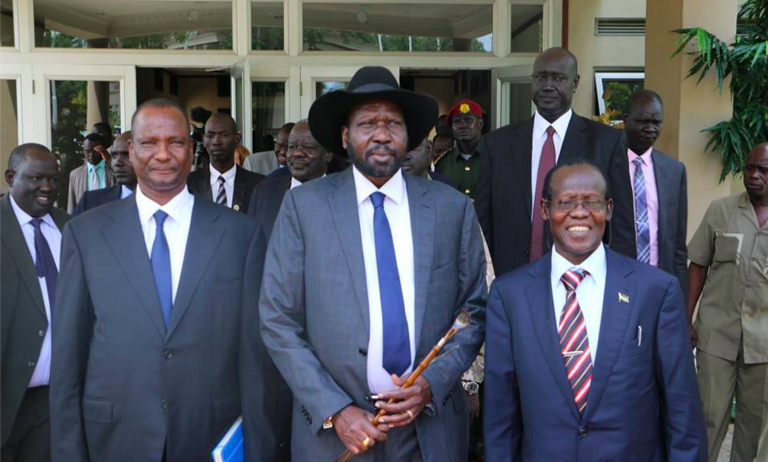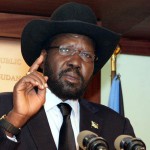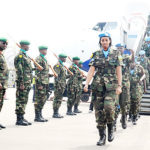The number of communities asking to be granted ‘new states’ in South Sudan is on the rise, and their demands could see the war-torn and impoverished country have a huge number of 42 states.
According to the First Vice President Taban Deng Gai, about 14 communities have gone to his office to express their desire for more states.
Currently South Sudan has 28 states but Gai, who was speaking at a meeting with religious leaders in Juba, said the number could reach 42 states if the presidency approved. He said was waiting the president to return from a foreign trip to hold a meeting with him and the Vice President, James Wani Igga to address the matter.
“I have finished with my work, I’m waiting for the president to return and when he comes we will discuss it. Because the sooner we resolved this issue of states is better, it will actually cement our peace,” he said.
“So you see this issue of more states of course it is a problem regarding the current economic situation in our country, but what is important is peace. If it can bring us peace, give them their states,” he added.
In a related development the South Sudanese presidency is yet to decide whether to reduce or increase the number of states, citing financial constraints and fear that it could spark new rebellion.
A presidential advisor on decentralization affairs and intergovernmental linkage said that consultations were still continuing to come out with a well-researched solution.
“There is no new information that I know to confirm to you now. I told you last time that the consultations are continuing. The first vice-president is still talking to the people. He has not yet finished with consultations. When he finishes, he will report back to the president and after that they will discuss it as the presidency and with other stakeholders. So let’s wait for the outcome of consultations,” Presidential Adviser on Decentralization and Intergovernmental Linkage, Tor Deng Mawien said.
The creation of states from 10 to 28 by President Salva Kiir Mayardit in 2015 was one of the sticking points that dogged the South Sudan peace deal with rebels allied to former Vice President Riek Machar protesting the increase. The peace deal was finally signed in in April 2015 in Addis Ababa, Ethiopia, but collapsed in July this year when rival forces of Kiir and Machar exchanged fire in Juba, resulting into Machar’s fleeing into exile.







